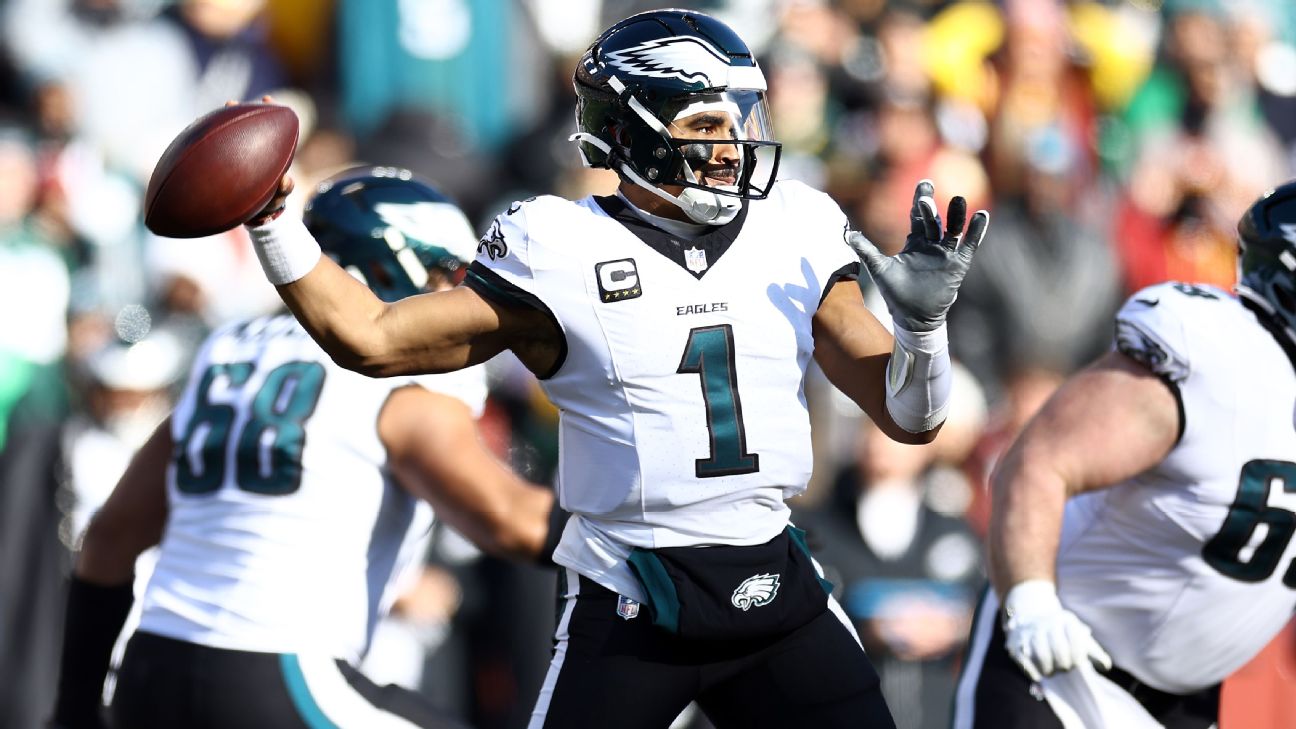Goodell, Lurie join players to understand protests

PHILADELPHIA -- NFL commissioner Roger Goodell and Philadelphia Eagles' owner Jeffrey Lurie joined several players to learn more about the issues players are protesting by taking a closer look at the inner-workings of Philadelphia's criminal justice system.
Goodell and Lurie accepted a request from safety Malcolm Jenkins, receiver Torrey Smith and retired wideout Anquan Boldin and were joined by Eagles teammates Chris Long and Rodney McLeod. The group met with police commissioner Richard Ross, former inmates and community advocates of criminal justice reform, and observed several bail hearings at the Defender Association of Philadelphia.
"The biggest reason we're here is the league and Mr. Lurie are trying to understand what some of the players in different cities are trying to accomplish, especially in the light of all of the social turmoil and the protests and all of this context," Jenkins told Ross in the first stop of a trip that was recorded by the Eagles' film crew.
Inspired by the Colin Kaepernick demonstration, Jenkins has raised a fist over his head during the playing of the national anthem since Week 2 of the 2016 season and has become a key member in the off-field player movement. He helps coordinate the efforts of a growing network of NFL players looking to get involved in social activism, has made multiple trips to Capitol Hill to speak with politicians about mass incarceration and police brutality, and has met local law enforcement and participated in a ride-along with Philadelphia police.
Shortly after violence erupted in his hometown of Charlottesville, Virginia, this summer, Long began placing his arm around Jenkins during the playing of the "Star-Spangled Banner" in a show of support. McLeod has made a similar gesture in recent weeks.
Lurie recently offered his thoughts on player protests during a news conference with the local media.
"I don't think anybody who is protesting the national anthem, in and of itself, is very respectful," he said. "If that's all their platform is, is to protest the national anthem, then what's the proactive nature of it? But I think we sometimes can misinterpret what those are. I've talked to Malcolm Jenkins about it. He's very involved in our community here. That's my involvement with Malcolm. It's, 'What can you do as a player to be involved in the community?'"
Jenkins recently took to Twitter to defend Lurie when his comments about Kaepernick and the protests were misrepresented in the media.
Following their up-close look at the criminal justice system, and listening to the different elements that lead to recidivism and other issues, Lurie and Goodell spoke of the need for a better approach to solving some of the complex problems.
"We've got to see what's been successful in certain areas and model that element of it. That's what's missing to me," Goodell said.
Jenkins was appreciative that Goodell and Lurie accepted his invitiation to look closer at Philadelphia's justice system.
"It meant a lot," Jenkins said. "Obviously with everything that is going on in the league, and just in the country in general, for them to accept -- not only [Goodell], but Mr. Lurie -- to accept the invitation and to not necessarily bring people to us, but to actually go to the community was a big step. And not to listen to me as players, but to actually listen to those who are in leadership positions who are doing this work day in and day out. ... I thought that was a big step and I think it meant a lot, not only to me but those people in Philadelphia who want to be heard."






